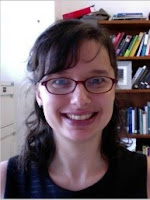From left: Mr Derek Yee, Dr Mirana Szeto, Mr John Sham
As a visiting University Artist, renowned actor, producer and businessman John Sham Kin-fun has one thing in mind: “I’m happy to talk about anything, but since this is an artist thing, let’s stick to art.” Given his other background as a one-time political activist, and the current times, it is an almost impossible agenda to follow.
The art is certainly covered. Mr Sham has a simple goal in agreeing to be a University Artist: “I want to discuss with the students where the Hong Kong film industry is going and the future of the industry.” At his first talk at HKU in November last year, he brought along director Derek Yee and screened his film
The Lunatics to open up discussion about the social responsibility of the filmmaker.
But as much as he tries to heed an artistic agenda, politics inevitably creeps into the conversation – not surprising since Mr Sham has strong personal connections with the pro-democracy camp, Umbrella Movement and government and was involved in Operation Yellow Bird to assist Chinese dissidents after the 1989 Tiananmen Square crackdown.
For instance, at one talk he asked students why they did not like Hong Kong-China co-productions, which open the door to the China market for Hong Kong filmmakers. These films typically flop at the local box office, but are a big success in China.
“The students will say they don’t know why they don’t want to see these films, but when you grill them, they start to think. Quite a lot of them will say, ‘Nobody told me the film was good’ – of course, because nobody saw it in the first place!
“I know the answer, it’s very simple. They don’t trust the films made in China, they think they are phony, they think they are censored.
“You hear moviegoers say these filmmakers don’t care about their feelings, they only care about the market. I say, well, as a businessman you can’t blame them. But as a creative person, do I agree with them? Now that’s another story.”
As a businessman, Mr Sham knows a great deal about cinema in China. He owns the country’s second largest cinema chain, having decided this was a better way to engage in the China market than navigating around censorship. It also lets him indulge romantic notions about the power of cinemas.
“When I grew up, the cinema was a place for dreams. I think China needs a lot of dreams. You can limit what people see by censoring movies, but going into a movie in a dark place you share with other people, your minds are full, it’s a different experience already. And of course it is a business opportunity – I have to make money for the company.”
People in Hong Kong, on the other hand, need confidence in the future – and many students are looking for answers in the Umbrella Movement. Mr Sham, who was also a student activist in his youth, sees another way. A former freelance investigative journalist for the
Sunday Times and
Granada Television, he is preparing to launch his own media outlet, HK01, which will include a news website and hefty print weekly that are heavy in investigative reporting. He is pushing his staff to turn the media and Hong Kong establishment on its head.
“I want Hong Kong people to be less helpless, be more confident, gain back our own good values – to stop being defeatist,” he said. “We will be daring. The world progresses by saying no, not by saying yes. Our motto is ‘solutions’. Hong Kong has to get back on its feet.”
The University Artists Scheme is hosted by the Faculty of Arts and is supported by Dr Alice Lam.
Upcoming events to be held under the University Artists Scheme in 2016 include a one-month residency by Glenn Davidson and Ann Hayes of Artstation in February, a concert by Trey Lee in the Grand Hall of the Lee Shau Kee Lecture Centre in May, and two major public talks featuring filmmaker Fruit Chan and film industry pioneer John Sham.
http://arts.hku.hk/knowledge-exchange/university-artists-scheme.
See the original article in
Arts Faculty Newsletter Winter 2015.















